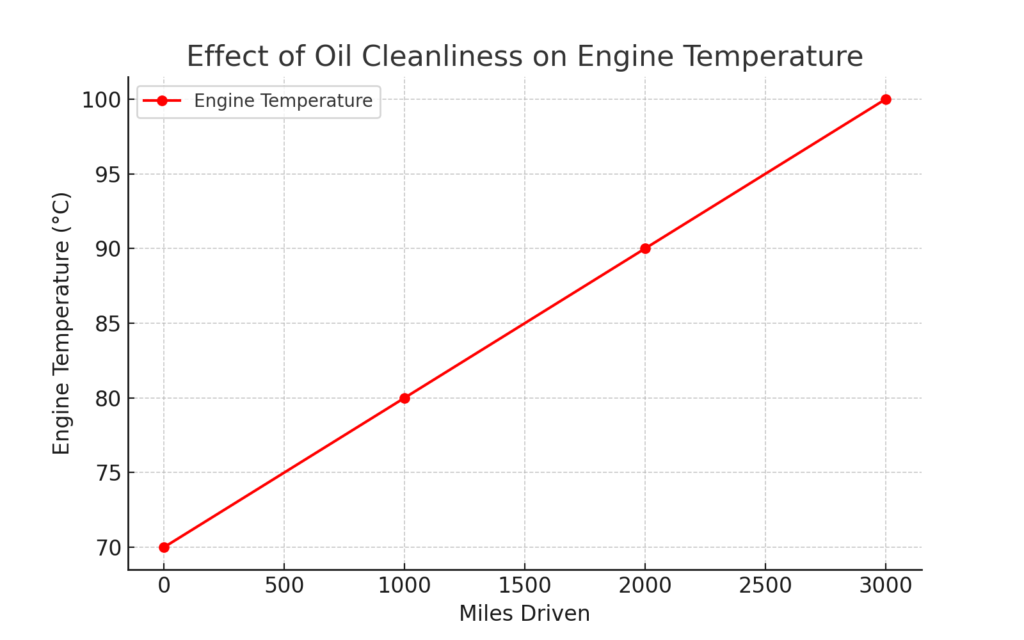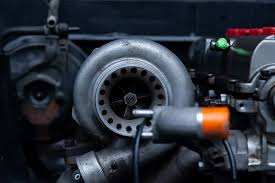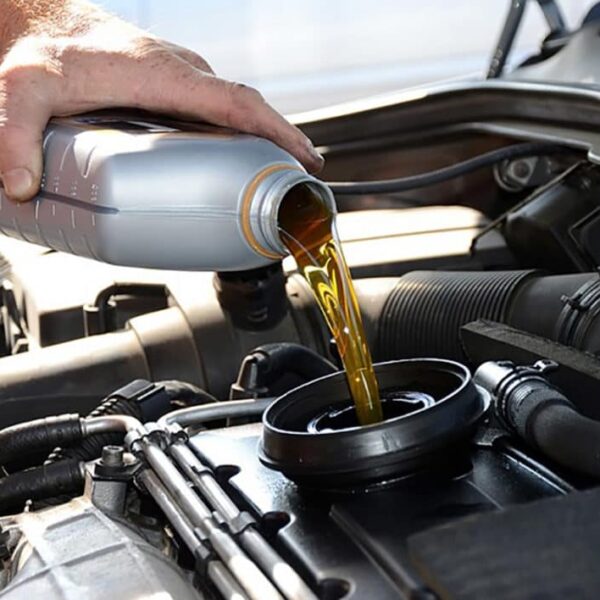Turbocharged engines are becoming increasingly common in modern vehicles due to their ability to deliver higher performance and efficiency. However, these powerful engines also generate more heat and pressure, which means they require special attention—especially when it comes to oil. Oil plays a critical role in keeping these engines running smoothly, and the wrong oil choice can lead to costly problems down the road.
In this article, we’ll break down the importance of choosing the best synthetic oil for turbo engines, discuss how often it should be changed, and provide expert tips to ensure your engine stays in optimal condition for years to come. Whether you’re a car enthusiast or simply trying to take care of your vehicle, this guide will provide practical, easy-to-understand advice on oil recommendations for turbocharged engines.
Why Oil is Essential for Turbocharged Engines
Turbocharged engines work harder and run hotter than regular engines. This means they need extra care to perform at their best, and one of the most important things you can do is use the right oil. Oil is the lifeblood of any engine, but it plays an even more critical role in turbocharged engines due to their unique design.
Lubrication and Heat Management
Turbocharged engines have parts that move very fast. The turbo itself spins at incredibly high speeds—often over 150,000 RPM (revolutions per minute). Without proper lubrication, these parts would grind against each other, causing severe wear and tear. Oil forms a protective layer that allows all these fast-moving parts to glide smoothly. This reduces friction, prevents damage, and keeps everything running efficiently.
But lubrication isn’t the only thing oil does. Turbocharged engines generate more heat than naturally aspirated engines. The turbocharger compresses air before it enters the engine, and this process raises the temperature dramatically. The oil helps to absorb some of this heat, carrying it away from the engine’s vital components, and preventing overheating.
Keeping the Engine Clean
Another essential role of oil is to keep the engine clean. As it flows through the engine, it picks up dirt, metal shavings, and other contaminants that could clog up small passages or scratch the engine’s delicate surfaces. Dirty oil can’t perform this cleaning function effectively, which is why regular oil changes are so important for turbocharged engines.
When the oil gets too dirty, it can no longer remove the buildup from these tiny particles. This can lead to poor performance, increased fuel consumption, and even long-term engine damage. Think of oil like a filter—if it gets clogged, it can’t do its job properly.
Preventing Deposits
Turbocharged engines are more likely to experience carbon buildup and sludge. Sludge is a thick, tar-like substance that forms when oil breaks down due to heat, pressure, or contaminants. If sludge forms in your engine, it can block oil passages and stick to critical engine parts like the turbocharger or pistons, leading to serious damage.
Using the right oil with proper detergents can help prevent deposits from forming in the first place. High-quality oils have additives designed to break down carbon buildup before it turns into sludge. Regular oil changes ensure that the oil stays fresh and effective, further protecting your engine from harmful deposits.
Oil’s Role in the Turbocharger
The turbocharger itself requires a constant supply of oil. It spins extremely fast, and without oil, the turbo would seize up and stop working altogether. The oil cools and lubricates the turbo, allowing it to handle the extreme pressure and heat it experiences every time you step on the gas.
If your turbo isn’t getting enough oil, it can result in turbo lag (when the turbo takes too long to respond), or worse, complete turbo failure. Once a turbocharger fails, the repair can be extremely costly. This is why it’s so important to not only use the right oil but to always maintain the proper oil levels in your turbocharged engine.
Expert Tip: Turbocharged Engines Need More Oil
One expert tip many people might not realize is that turbocharged engines generally require more oil than regular engines. Because the oil is performing additional tasks (like cooling and lubricating the turbo), more oil is consumed during operation. Always check your owner’s manual or consult a professional to find out how much oil your specific turbocharged engine needs.
Key Takeaways:
- Oil is essential for lubrication, cleaning, and heat management in turbocharged engines.
- Regular oil changes are critical to prevent sludge, buildup, and engine damage.
- Turbocharged engines require more oil than naturally aspirated engines due to the turbo’s additional needs.
By understanding why oil is so important, you’ll be able to keep your turbocharged engine running smoothly for years to come.
Here’s a helpful illustration that demonstrates the key points visually:

This graph visually illustrates the relationship between how dirty oil becomes and the rise in engine temperature over time, reinforcing the need for regular oil changes in turbocharged engines.
The Importance of Regular Oil Changes
Oil is the lifeblood of your engine. It’s what keeps all the moving parts functioning smoothly, ensuring your vehicle runs efficiently. But, over time, engine oil doesn’t stay clean forever. It picks up dirt, metal particles, and other contaminants that make it less effective. Regular oil changes are essential for keeping your engine healthy and extending its lifespan.
Why Oil Becomes Dirty
Oil runs through the engine, picking up particles, soot, and debris. These impurities come from several places, including:
- Combustion by-products: Tiny bits of carbon and other elements that form as fuel burns.
- Engine wear: Small metal shavings and particles that naturally occur as the engine parts rub against each other.
- Environmental contaminants: Dust and dirt that sneak past filters and seals.
Over time, this buildup makes oil less slippery, causing it to lose its ability to lubricate the engine properly. In short, dirty oil is bad news for your car’s performance and longevity.
What Happens When You Don’t Change Oil
If you skip regular oil changes, the oil becomes too dirty and thick to do its job. Here’s what happens:
- Increased friction: Without clean oil, engine parts will rub against each other more, causing wear.
- Reduced performance: Your engine has to work harder, leading to lower fuel efficiency and sluggish acceleration.
- Overheating: Dirty oil can’t absorb and distribute heat as efficiently, which increases the risk of engine overheating.
- Potential engine damage: If neglected long enough, dirty oil can even lead to catastrophic engine failure.
It’s not just about keeping your engine running. Regular oil changes also reduce harmful emissions, helping the environment and keeping your car in line with emissions regulations.
How Often Should You Change Your Oil?
For most naturally aspirated gas engines, the general rule is to change the oil every 5,000 miles. But if you have a turbocharged or diesel engine, the recommendation is more frequent—about every 3,000 miles. Turbocharged engines operate at higher temperatures, which makes the oil break down more quickly. Diesel engines also produce more soot, which contaminates the oil faster.
Always check your vehicle’s owner manual for the manufacturer’s specific recommendations. It’s worth noting that oil change intervals can vary depending on driving habits and conditions. For instance:
- Frequent short trips: If you drive mostly in the city, your engine doesn’t get a chance to warm up fully, which can cause oil contamination more quickly.
- Heavy towing: Hauling trailers or other heavy loads puts more stress on the engine, making regular oil changes even more important.
- Extreme temperatures: Both hot and cold weather can affect how quickly oil degrades. In very cold climates, oil becomes thick and doesn’t flow as easily, while extreme heat causes it to break down faster.
Expert Tip: Check Oil Levels Regularly
Even with regular oil changes, it’s important to keep an eye on your oil level. Make it a habit to check your oil once a month. Low oil levels can cause severe damage to your engine, especially in turbocharged engines, which use more oil than their naturally aspirated counterparts.
To check your oil:
- Park your car on a level surface and wait for the engine to cool.
- Pull out the dipstick, wipe it clean, and then dip it back into the engine.
- Remove it again and check where the oil level sits between the “low” and “full” marks.
If it’s low, add oil immediately. Always use the type of oil recommended in your owner’s manual to avoid issues with performance.
Here’s a breakdown of oil change intervals for different engines:
| Engine Type | Oil Change Interval |
|---|---|
| Naturally Aspirated (Gas) | Every 5,000 miles |
| Turbocharged (Gas/Diesel) | Every 3,000 miles |
| Electric Hybrid (Gas/Electric) | Varies, check manual |
In short, regular oil changes are crucial for maintaining the performance and longevity of your engine. Whether you drive a turbocharged powerhouse or a standard gas engine, clean oil is essential. By sticking to a regular oil change schedule and checking your oil levels, you’re ensuring that your vehicle will run smoothly for years to come.
Do Turbocharged Engines Need More Oil?
Yes, turbocharged engines typically require more oil than naturally aspirated engines, and there’s a very good reason for that. While both types of engines rely on oil for lubrication, turbocharged engines place significantly higher demands on oil due to the way they operate.
Why Turbocharged Engines Need Extra Oil
Turbocharged engines work by forcing more air into the combustion chamber, increasing the power output. This additional air boosts combustion, but it also generates a lot more heat. More heat means more strain on the engine components, particularly the turbocharger itself, which spins at incredibly high speeds—sometimes as high as 150,000 RPM! The turbocharger also operates under intense pressure. In this environment, the oil not only has to lubricate engine parts, but it also acts as a cooling agent, helping to regulate the temperature of the turbocharger.
As a result, more oil is needed to:
- Lubricate both the engine and the turbocharger.
- Cool down the turbocharger and prevent overheating.
- Minimize friction and reduce wear on critical components.
Consequences of Using Too Little Oil
Using too little oil in a turbocharged engine can lead to several problems. First, the oil will not be able to provide adequate cooling for the turbocharger, leading to overheating. This can cause the turbo to fail prematurely. Secondly, the engine may experience increased wear due to insufficient lubrication, which can result in damage to the pistons, valves, and other moving parts.
Expert Tip: Always consult your vehicle’s owner manual to determine the exact oil capacity for your turbocharged engine. This ensures you use the right amount of oil for optimal performance and longevity.
How to Check the Oil Capacity
To check how much oil your turbocharged engine needs, you can:
- Look at the user’s manual – It will have a section on oil capacity.
- Check with the manufacturer – Sometimes, you might need specific oil recommendations based on your driving conditions or climate.
- Look under the hood – Many vehicles also have a sticker under the hood that lists the oil capacity and the recommended oil type.
For most vehicles, turbocharged engines require up to 20% more oil than their naturally aspirated counterparts. This is primarily due to the fact that oil in turbocharged engines has to handle multiple tasks, like lubrication, cooling, and cleaning, all at the same time.
Signs Your Engine May Be Low on Oil
It’s crucial to keep an eye on your oil levels, especially in a turbocharged engine. Some warning signs of low oil include:
- Engine knocking or ticking noises – This happens when the moving parts are not adequately lubricated.
- Overheating – If your engine overheats more frequently, it could be due to low oil levels.
- Reduced performance – When there’s not enough oil, the engine may run rougher and lose power.
Personal Anecdote
From my years as a Toyota mechanic, I’ve seen many cases where owners of turbocharged vehicles neglected their oil levels. One particular customer brought in a turbocharged Toyota Supra that was experiencing reduced performance and strange engine noises. After a quick inspection, it turned out the engine was low on oil, and the turbocharger had begun to overheat. Fortunately, the problem was caught early enough to avoid significant damage. But this just goes to show how critical it is to maintain proper oil levels in turbocharged engines.
By ensuring you always have enough oil in your turbocharged engine, you can prevent costly repairs, improve performance, and extend the life of your vehicle.
How to Choose the Right Oil for Turbocharged Engines
When it comes to choosing the right oil for your turbocharged engine, you have to be a little more selective than with naturally aspirated engines. Turbocharged engines run hotter and face more stress, so they require oils that can handle those high temperatures and protect the engine from wear. Here’s what you need to know:
Understanding Oil Viscosity
Oil viscosity refers to how thick or thin the oil is and how easily it flows at different temperatures. You’ll often see oil labeled with two numbers, like 0W-30. But what do these numbers mean?
- The First Number (Before the “W”): This number tells you how well the oil flows in cold conditions. The “W” stands for winter, so this number is all about how the oil behaves when your engine is cold, like during a cold start.
- 0W or 5W: If you live in a place where winters are harsh and temperatures drop well below freezing, go for 0W or 5W. This oil is thinner when it’s cold, which helps your engine start more easily.
- 10W: For moderate climates where it doesn’t get too cold, 10W is a safe bet.
- 15W or 20W: In warmer climates, oils with 15W or 20W work better. They’re thicker, so they hold up in high-heat environments.
- The Second Number (After the “W”): This is the oil’s viscosity at normal operating temperatures—when the engine is running. Turbocharged engines generate a lot of heat, so this number is crucial.
- 30 or 40: For turbocharged engines, a viscosity of 30 or 40 is ideal because it handles the heat better. If your car has a particulate filter, you should stick with 30. If there’s no filter, 40 can be a better choice.
Here’s a simple breakdown:
| Climate | Cold-Start (W) | Operating Temp |
|---|---|---|
| Cold Climate | 0W or 5W | 30 or 40 |
| Moderate Climate | 10W | 30 or 40 |
| Hot Climate | 15W or 20W | 30 or 40 |
Choosing Between Synthetic and Conventional Oil
You’ll often hear people say that synthetic oil is better for turbocharged engines, but why? Let’s look at the key differences:
- Synthetic Oil: This type of oil is specially engineered to withstand higher temperatures, resist sludge buildup, and last longer between oil changes. Because turbocharged engines create more heat, synthetic oil helps reduce wear and tear. It also holds up better under high pressure, which is typical for turbo engines.
- Conventional Oil: While conventional oil can get the job done, it breaks down faster under heat and pressure. This makes it less ideal for turbocharged engines, which work harder than naturally aspirated ones. You might have to change your oil more frequently if you stick to conventional oil.
Most experts recommend synthetic oil for turbocharged engines, and if you ask any mechanic, they’ll likely tell you the same. In my own experience working with Toyota turbocharged engines, I’ve seen the difference synthetic oil makes. It keeps the engine running smoother for longer, especially in high-performance conditions.
Why the Right Oil Matters
If you don’t use the right oil, your turbocharger could overheat, and that’s a costly repair. The oil in a turbocharged engine doesn’t just lubricate the moving parts—it also cools the turbocharger, which can reach extremely high temperatures. Using the wrong oil can lead to oil degradation, which causes a buildup of deposits, harming the turbocharger and engine.
In fact, I’ve had customers who ignored their oil type and ended up with a clogged turbocharger, which resulted in expensive repairs. It’s a situation you want to avoid!
How to Check Manufacturer Recommendations
Before picking out oil, always check your owner’s manual. It has specific recommendations for your engine model, and those specs are designed to keep the engine running optimally. If you’re unsure, reach out to the manufacturer or visit a trusted mechanic. They’ll guide you toward the best oil options for your car and climate.
Pro Tip: Stick to oils that meet API standards and are marked as suitable for turbocharged engines. This ensures that the oil has been tested and meets industry requirements for turbocharged performance.
Here’s an example of a simple graph showing the difference between synthetic and conventional oil performance in turbocharged engines over time:
Synthetic vs. Conventional Oil Performance Over Time
In Summary
- Choose oil based on your climate and the engine’s operating temperature needs.
- Synthetic oil is usually the best choice for turbocharged engines because of its high-temperature resistance.
- Always check the vehicle manual for specific recommendations, and don’t forget regular oil checks to keep your turbocharger and engine running smoothly.
Taking care of your turbocharged engine isn’t hard, but it does take a bit of extra thought. With the right oil, you’ll keep your engine performing at its best for years to come.
Looking for more maintenance tips for your turbocharged vehicle? Check out our guide on extending turbocharger life and top-rated oils for turbocharged engines!
Synthetic vs. Conventional Oil: What’s Better for Turbocharged Engines?
When it comes to turbocharged engines, choosing the right oil is crucial to ensure optimal performance and engine longevity. As an expert in the field, I’ve worked on countless turbocharged engines, and one of the most frequent questions I get is whether to use synthetic or conventional oil. Let’s dive into the key differences between these two oil types and why your turbocharged engine might benefit from one over the other.
What’s the Difference Between Synthetic and Conventional Oil?
In the simplest terms, conventional oil is derived from crude oil and refined to a usable form. On the other hand, synthetic oil is engineered in labs to perform better under extreme conditions, which is why it’s often recommended for turbocharged engines. Turbo engines generate a lot more heat and pressure than naturally aspirated engines, meaning they need oil that can withstand these high demands.
Here’s a quick comparison:
- Conventional Oil:
- Derived from crude oil.
- Generally cheaper than synthetic.
- Breaks down faster under heat and stress.
- Synthetic Oil:
- Chemically engineered for high performance.
- Lasts longer and performs better at high temperatures.
- Resists breakdown, reducing engine wear.
Why Synthetic Oil is Ideal for Turbocharged Engines
Turbocharged engines operate at much higher temperatures than standard engines. The turbocharger itself spins at thousands of rotations per minute (RPM), which causes a lot of friction and heat. Synthetic oil is designed to handle this extreme environment better than conventional oil, providing more consistent lubrication and reducing wear over time.
Additionally, synthetic oil is less likely to form deposits or sludge. Over time, conventional oil can break down and leave behind harmful deposits inside your engine, which can clog oil passages and affect performance. Synthetic oil, however, is more resistant to this breakdown and sludge formation, which keeps your turbocharger running smoothly.
Expert Tip: From my personal experience working on turbocharged engines, I’ve seen significant wear and tear in vehicles using conventional oil over long periods. One particular client’s turbo engine had suffered early failure due to poor lubrication from degraded conventional oil. After switching to synthetic, they noticed improved performance, and the turbo lasted much longer.
Advantages of Synthetic Oil for Turbocharged Engines
- Better Heat Resistance: Turbocharged engines produce a lot of heat, and synthetic oil doesn’t break down as quickly as conventional oil when exposed to high temperatures.
- Longer Oil Life: Synthetic oil lasts longer between oil changes, meaning you’ll save time and money on maintenance in the long run.
- Cleaner Engine: Synthetic oil leaves fewer deposits, keeping your engine cleaner and reducing the risk of clogs or performance drops.
- Improved Fuel Efficiency: Because synthetic oil flows more easily and maintains its properties better, it can also help improve your engine’s fuel efficiency.
Here’s a table comparing the performance of synthetic oil and conventional oil at different temperatures:
| Temperature (°C) | Synthetic Oil Performance (%) | Conventional Oil Performance (%) |
|---|---|---|
| 0 | 100 | 100 |
| 20 | 95 | 90 |
| 40 | 90 | 80 |
| 60 | 85 | 70 |
| 80 | 80 | 60 |
| 100 | 75 | 50 |
| 120 | 70 | 40 |
| 140 | 65 | 30 |

Explanation
- Temperature (°C): This column represents the temperature at which the oil performance is measured.
- Synthetic Oil Performance (%): This column shows the performance rating of synthetic oil at each temperature.
- Conventional Oil Performance (%): This column shows the performance rating of conventional oil at each temperature.
Key Takeaways
- Synthetic oil maintains a higher performance rating as the temperature increases compared to conventional oil.
- At higher temperatures, the performance of conventional oil significantly decreases, which can lead to engine wear and inefficiency.
Can I Use Conventional Oil in a Turbocharged Engine?
While it’s possible to use conventional oil in a turbocharged engine, it’s generally not recommended unless the manufacturer explicitly says it’s okay. Most modern turbocharged engines are designed with synthetic oil in mind because it offers better protection and durability. Using conventional oil might save you a bit of money upfront, but you could end up with costly repairs down the road if your engine isn’t properly protected.
Is Synthetic Oil Worth the Cost?
I often get asked whether synthetic oil is worth the extra expense. From my experience, the answer is a resounding yes, especially if you own a turbocharged vehicle. The higher upfront cost of synthetic oil is balanced out by longer oil life, improved engine protection, and better overall performance. Plus, it’s a small price to pay to avoid expensive repairs caused by engine damage or turbocharger failure.
Personal Anecdote: I once worked with a driver who was skeptical about switching to synthetic oil for their turbocharged vehicle. After just a few months on synthetic, they reported smoother engine operation and fewer overheating issues on long drives. The improved performance and peace of mind convinced them it was the right choice.
Final Thoughts: Synthetic Oil for Turbocharged Engines
When it comes to turbocharged engines, synthetic oil is the best choice. It’s designed to withstand the high temperatures, pressure, and stress that these engines generate. While it may cost a bit more, the benefits far outweigh the extra cost, especially in terms of engine longevity and performance.
Remember, always check your vehicle’s manual for the manufacturer’s recommendations on oil type, and don’t hesitate to consult a professional if you’re unsure.
For more in-depth guides on engine maintenance and performance, check out our other articles on best auto insurance policies for tips on keeping your vehicle protected.
Additional Tips for Maintaining Turbocharged Engines
Maintaining a turbocharged engine goes beyond regular oil changes. To keep your engine running smoothly and extend its lifespan, here are some expert tips that can make all the difference in the performance of your turbocharged vehicle.
1. Monitor Oil Levels Frequently
Turbocharged engines work harder than naturally aspirated ones, which means they often burn through oil faster. It’s a good idea to check your oil levels regularly, not just during scheduled maintenance.
- Why this matters: Low oil levels can lead to insufficient lubrication, causing friction and heat to build up, which can damage both the engine and the turbocharger.
- How to do it: Once a week, pop the hood and use the dipstick to ensure your oil is at the proper level. Top off as needed but be careful not to overfill.
2. Choose the Right Oil Filter
Selecting a high-quality oil filter is just as important as choosing the right oil. Turbocharged engines produce more debris due to higher temperatures, which means the oil filter has to work harder to keep contaminants out of the engine.
- Why this matters: A cheap or poorly-made filter can become clogged or break down under the higher pressures in a turbocharged engine, leading to poor oil circulation and possible damage.
- Expert advice: Stick with filters recommended by your vehicle manufacturer or go for premium aftermarket options designed for high-performance engines.
3. Let the Engine Warm Up Before Driving
You’ve probably heard that it’s important to let your car “warm up” before driving, but with turbocharged engines, this step is even more critical. When the engine is cold, oil is thicker and doesn’t flow as efficiently.
- Why this matters: Driving immediately after starting a cold turbocharged engine can cause premature wear, especially in the turbocharger.
- Tip: Start the engine and let it idle for a minute or two before hitting the road, especially on cold days.
4. Don’t Turn the Engine Off Right Away After Driving
After a long drive or hard acceleration, it’s tempting to turn the engine off immediately. However, turbocharged engines need a moment to cool down.
- Why this matters: Shutting off the engine right away cuts off the oil supply to the turbocharger, which may still be spinning at high speeds. This can cause the oil left in the turbocharger to overheat and break down, leading to carbon buildup, also known as “coking.”
- How to avoid this: Let the engine idle for about 30 seconds before shutting it off, especially after a long drive.
5. Keep an Eye on the Turbo Boost Gauge
If your vehicle is equipped with a turbo boost gauge, keep an eye on it while driving. The boost gauge shows how much extra pressure the turbocharger is providing to the engine.
- Why this matters: If you notice the turbo boost pressure dropping unexpectedly, it could be a sign of an issue with the turbocharger, such as a leak or failing component.
- Action step: Have a mechanic check the system if you see anything unusual with the boost gauge readings.
6. Use Premium Fuel When Required
Many turbocharged engines are designed to run on higher-octane fuel. Using regular gasoline in an engine designed for premium can lead to “knocking,” which can damage the engine over time.
- Why this matters: Knock occurs when fuel ignites prematurely, which can be harmful to the sensitive components in a turbocharged engine.
- Expert tip: Always follow your car manufacturer’s fuel recommendations. If it says premium fuel is required, don’t skimp on this.
7. Clean or Replace the Air Filter Regularly
Turbocharged engines need a lot of air to perform well. A clogged air filter restricts airflow and reduces performance.
- Why this matters: A dirty air filter means your turbocharger has to work harder to provide enough air, leading to increased wear and tear.
- Tip: Inspect the air filter every time you change the oil and replace it if it’s dirty.
8. Pay Attention to Exhaust Smoke
Excessive or strange-colored exhaust smoke can indicate an issue with the turbocharger. Blue or grey smoke may mean oil is leaking into the turbocharger, while black smoke suggests a fuel mixture problem.
- Why this matters: These signs usually indicate serious issues that need to be addressed immediately to prevent further damage to the engine or turbocharger.
- What to do: If you see unusual smoke, take the car to a mechanic as soon as possible for a diagnosis.
9. Don’t Push the Turbo Too Hard, Too Often
While turbocharged engines are designed for performance, overusing the turbo can reduce its lifespan. Constantly pushing your engine to its limits will wear out both the turbocharger and the engine faster.
- Why this matters: The more you use the turbo, the more strain you put on the engine’s components, which can lead to overheating, oil breakdown, and premature wear.
- How to balance it: Enjoy the boost when needed, but avoid excessive high-speed driving or towing heavy loads for extended periods.
10. Get Regular Professional Checkups
Even with diligent self-maintenance, it’s essential to have your turbocharged engine inspected by a professional regularly.
- Why this matters: A mechanic can catch problems early, before they turn into expensive repairs.
- Bonus tip: If you hear unusual sounds like whining or grinding, or notice a drop in performance, schedule a service appointment immediately.
Maintaining a turbocharged engine involves more than just regular oil changes. From monitoring oil levels to using premium fuel, every step helps keep the turbo working smoothly and efficiently. By following these expert tips, you’ll ensure your turbocharged engine stays in top shape for years to come.
Oil Recommendations for Turbocharged Engines Summary
Turbocharged engines are known for their power and efficiency, but they operate under extreme conditions, such as higher temperatures and pressure compared to naturally aspirated engines. Choosing the right oil is crucial for maintaining these engines’ performance and longevity. In this article, we’ll explore the best oil recommendations for turbocharged engines and why they matter.
How Turbocharged Engines Differ from Naturally Aspirated Engines
Turbocharged engines compress more air into the cylinders, which boosts power but also creates more heat and stress. This means the engine parts are working harder, and the oil is essential for lubricating and cooling these fast-moving components. Here’s why:
- Higher Temperatures: Turbochargers can reach temperatures up to 1,000 degrees Fahrenheit.
- Faster Wear: The moving parts in a turbocharged engine experience more friction due to higher speeds and pressure.
This makes it essential to use oil that can handle the extreme conditions turbocharged engines face every time you drive.
Why Oil is Essential for Turbocharged Engines
Oil doesn’t just keep things moving smoothly—it protects your engine from the inside out. It lubricates critical components, like the turbocharger’s compression valve and intake fans, preventing them from wearing out too quickly. At the same time, it stops deposits from forming, which can clog your engine and reduce its efficiency.
The oil also carries away harmful particles and contaminants that build up over time. But dirty oil can do more harm than good, as it can reduce engine performance, lower fuel mileage, and even increase harmful emissions. That’s why regular oil changes are so important, especially for turbocharged engines.
How Often Should You Change the Oil?
For turbocharged engines, the frequency of oil changes matters a lot. Experts recommend changing the oil every 3,000 miles for turbocharged or diesel engines. This is because turbocharged engines put more strain on the oil than naturally aspirated ones.
Here’s a quick guide for oil changes based on engine type:
- Naturally Aspirated Engines: Every 5,000 miles.
- Turbocharged Engines: Every 3,000 miles.
Pro tip: Always refer to your car’s manual for the manufacturer’s recommendation.
Do Turbocharged Engines Need More Oil?
Turbocharged engines usually need more oil because they rely on it for both engine lubrication and cooling the turbocharger. Using too little oil can be disastrous—it may cause the engine and turbocharger to overheat and fail.
To prevent this, always check your engine’s oil capacity. This information is in the owner’s manual, or you can contact the manufacturer directly. It’s better to use a bit more oil than risk running low, as the consequences can be costly.
How to Choose the Right Oil for Turbocharged Engines
When picking oil for your turbocharged engine, viscosity is the key. Viscosity refers to how thick or thin the oil is, which impacts how it flows through your engine. This is indicated by the numbers on the oil container, like 5W-30 or 10W-40.
Understanding Oil Viscosity Ratings
The first number, followed by a “W,” stands for the oil’s cold start viscosity. For example:
- 0W or 5W: Better for colder climates where you need the oil to flow easily when starting a cold engine.
- 10W: Ideal for moderate temperatures.
- 15W or 20W: Best for warmer climates, where thicker oil helps protect the engine under higher temperatures.
The second number refers to the oil’s viscosity at operating temperature. Turbocharged engines produce more heat, so you need oil that’s thick enough to protect your engine in these conditions.
- 30 or 40: Both viscosities are generally recommended for turbocharged engines.
Note: If your car has a particulate filter, 30 is usually the safest option. For cars without a particulate filter, 40 might be preferable for extra heat protection.
Synthetic vs. Conventional Oil: Which is Best?
When it comes to turbocharged engines, synthetic oil is typically the better choice. Here’s why:
- Higher Heat Resistance: Synthetic oil holds up better under extreme temperatures, which is exactly what turbocharged engines need.
- Less Sludge: Synthetic oil doesn’t break down as easily, meaning fewer deposits and cleaner engine parts.
- Longevity: It lasts longer between changes, which can save you time and money in the long run.
That said, conventional oil can still work in turbocharged engines, but it may require more frequent changes and won’t provide the same level of protection as synthetic.
Why Experts Prefer Synthetic Oils
In my 13 years as an auto mechanic, I’ve seen firsthand the difference synthetic oil can make in turbocharged engines. Once, a customer’s turbocharger failed prematurely because they had been using conventional oil and neglected oil changes. Switching to synthetic oil not only fixed their overheating problem but also improved the car’s overall performance.
Additional Tips for Maintaining Turbocharged Engines
To keep your turbocharged engine running smoothly, here are a few additional tips:
- Check Oil Levels Regularly: Turbocharged engines use more oil, so you’ll need to top it off more often.
- Use High-Quality Filters: A cheap filter can let contaminants into your engine, causing damage. Stick with high-quality filters recommended by your manufacturer.
- Don’t Skip Oil Changes: Even if you’re using synthetic oil, it’s important to stick to your oil change schedule to avoid long-term damage.
Conclusion
Choosing the right oil for your turbocharged engine isn’t just a suggestion—it’s a necessity. The oil you use affects your engine’s performance, longevity, and overall health. By selecting the correct oil viscosity, opting for synthetic oils, and sticking to a regular oil change schedule, you’ll keep your engine running smoothly for years to come.
Remember: Turbocharged engines need more care than naturally aspirated ones. But with the right oil and proper maintenance, you’ll ensure your turbocharger and engine remain in peak condition. Whether you’re a car enthusiast or just someone who wants their engine to last, paying attention to oil choices can make all the difference.

Author: Frank Jenkins
Frank Jenkins – Family Car Expert and Safety Advocate
Frank Jenkins, steering you towards safer and smarter family driving. Based in: New York, New York, USA
About Me
Greetings from New York City! I’m Frank Jenkins, your navigator in the world of family vehicles and automotive safety. With over 15 years of experience as an automotive writer and safety consultant, I focus on what matters most to families on the go. Through rigorous testing and detailed research, I ensure that your next family car is not only comfortable and stylish but also packed with the latest safety features.
Contact Information
Topics of Interest
- Family-Friendly Car Reviews
- Vehicle Safety Systems
- Child Passenger Safety
- Road Trip Planning and Car Entertainment
Memberships
More About Frank
Short Bio: Frank Jenkins has become a household name for parents seeking advice on the best and safest cars for their families. His reviews are infused with a parent’s concern and an engineer’s precision. Education: Bachelor of Science in Automotive Technology from the New York University Qualifications: Certified Child Passenger Safety Technician (CPST) Languages: English (Native), French (Intermediate) Previous Roles:
- Safety Feature Columnist for Family Wheels Magazine
- Technical Advisor for Safe Car Campaigns
- Host of “The Safe Family Road Trip” Podcast
Fun Fact: Frank once organized a cross-country road safety workshop, visiting over 50 cities in 30 days.
Interactive Features
- Safety First with Frank: A forum dedicated to discussing and sharing best practices for family road safety.
- Frank’s Philosophy: “The best family memories are made in cars that put safety above everything else.”
- Your Stories: A section for readers to share their family road trip experiences and car-related anecdotes.
Featured Content
Newest Articles:
- “The Ultimate Guide to Family Cars in 2024”
- “Innovations in Car Safety: What Families Need to Know”
Highlighted Content:
- “Minivan or SUV: The Great Family Debate Resolved”
- “Child Seats 101: Choosing the Right One for Your Car”
Recommended Reads:
- “The Road to Safety: How Cars Have Become Safer for Children”
- “Entertaining Your Kids on the Road: Tips and Tricks”
Multimedia Spotlight:
- Podcast: “Drive Time Family” – Discussions on making family travel safer and more enjoyable
- Video Series: “Car Seat Clinics” – Demonstrations on proper car seat installation and usage
Editorial Team & Collaborations
Frequent Co-authors:
- Emily Chen, Urban Driving Specialist
- Marcus O’Reilly, Off-Road Adventure Guru
Editorial Staff Overview: A team of dedicated writers and safety experts committed to helping families make informed decisions about their vehicles. Editorial Guidelines: We are steadfast in providing transparent and practical advice that prioritizes the well-being of all passengers.
Journey With Me
For reliable reviews, safety advice, and the best in family automotive, hit the road with Frank Jenkins at oilforcar.com






Pingback: Recognizing the Signs of a Failing Car Battery: A Complete Guide to Avoiding Unexpected Breakdowns - Oil for Car – Car Oil Reviews, Guides, & Car Tips
Pingback: Understanding the Difference Between API CK-4 and FA-4 Engine Oils - Oil for Car – Car Oil Reviews, Guides, & Car Tips